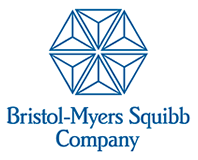 The UK High Court recently gave its judgment in the case of Merck, Sharp & Dohme Corp. and Bristol-Myers Squibb Pharmaceuticals Ltd (collectively referred to in the judgement as BMS) v Teva Pharma B.V. and Teva UK Ltd (Teva) (decision). The judgement is interesting as it is one of the few so called "quia timet" injunctions that has been issued by the UK High Court on the basis of a contention by a patent proprietor that a generic pharmaceutical company intends to launch its generic drug whilst the patent and SPC under which the drug is protected are still in force. A quia timet injunction is an injunction to restrain harm which has not yet occurred but what is being threatened is imminent.
The UK High Court recently gave its judgment in the case of Merck, Sharp & Dohme Corp. and Bristol-Myers Squibb Pharmaceuticals Ltd (collectively referred to in the judgement as BMS) v Teva Pharma B.V. and Teva UK Ltd (Teva) (decision). The judgement is interesting as it is one of the few so called "quia timet" injunctions that has been issued by the UK High Court on the basis of a contention by a patent proprietor that a generic pharmaceutical company intends to launch its generic drug whilst the patent and SPC under which the drug is protected are still in force. A quia timet injunction is an injunction to restrain harm which has not yet occurred but what is being threatened is imminent.
The patent
Efavirenz is a drug used to control HIV infections and is protected by the patent EP (UK) 0 582 455 (and its associated SPC) which is owned by Merck. The patent will expire on 3 August 2013 and the SPC on 20 November 2013.
Interim injunction
 Teva obtained a marketing authorisation for Europe for generic efavirenz in early 2012. From its actions in previous cases, such as the Warner Lambert case concerning generic atorvastatin, Teva had a reputation to launch generic versions of a drug while the patent and SPC protecting the drug were still in force. BMS therefore asked Teva what its intentions were regarding the launch of generic efavirenz. Teva replied that its policy was to not divulge commercial information to its competitors. It also pointed out that the grant of the marketing authorisation for generic efavirenz permits but does not require Teva to market the generic product and that it was Teva's policy to not infringe valid patents.
Teva obtained a marketing authorisation for Europe for generic efavirenz in early 2012. From its actions in previous cases, such as the Warner Lambert case concerning generic atorvastatin, Teva had a reputation to launch generic versions of a drug while the patent and SPC protecting the drug were still in force. BMS therefore asked Teva what its intentions were regarding the launch of generic efavirenz. Teva replied that its policy was to not divulge commercial information to its competitors. It also pointed out that the grant of the marketing authorisation for generic efavirenz permits but does not require Teva to market the generic product and that it was Teva's policy to not infringe valid patents.
Dissatisfied with Teva's reply, BMS applied to the UK court for injunctive relief alleging that Teva's actions to obtain a marketing authorisation for Europe at an unusually early time during the patent term and its reluctance to provide details of its intentions concerning the launch of generic efavirenz in the UK indicated an intention to infringe the patent and SPC.
Teva countered that the claim should be struck out because it was not based on the validity of the patent but instead on whether Teva's actions amounted to a threat to infringe.
 The judge believed that BMS had reasonable grounds for seeking injunctive relief. In the judge's view, the fact that Teva went to the trouble of obtaining a marketing authorisation for efavirenz gave a concrete inference that Teva intended to sell efavirenz at some time. Furthermore, the judge found that the fact that Teva obtained the marketing authorisation almost 22 months before patent expiry, which is unusually early, supported an inference that generic efavirenz was intended to be launched before patent expiry.
The judge believed that BMS had reasonable grounds for seeking injunctive relief. In the judge's view, the fact that Teva went to the trouble of obtaining a marketing authorisation for efavirenz gave a concrete inference that Teva intended to sell efavirenz at some time. Furthermore, the judge found that the fact that Teva obtained the marketing authorisation almost 22 months before patent expiry, which is unusually early, supported an inference that generic efavirenz was intended to be launched before patent expiry.
An interim injunction was therefore granted on 15 March 2012 against Teva to prevent the launch of generic efavirenz in the UK.
Final trial
At final trial (decision issued on 9 July 2013) the only question that was considered was whether Teva, by its actions, threatened to infringe EP (UK) 0 582 455 and its associated SPC before their expiry and, thus, whether a final injunction for the remaining term of the patent and SPC ought to be granted.
Teva argued that at the time the action was brought (February 2012) it did not intend to launch generic efavirenz before expiry of EP (UK) 0 582 455 and its associated SPC. Teva presented documentation from its in-house legal and commercial departments which, Teva asserted, supported its position.
The judge summarised the test under UK law for granting quia timet injunctions as whether, in all the circumstances, there is a sufficiently strong probability that an injunction will be required to prevent harm to the claimant occurring that the bringing of proceedings by the claimant is justified. The defendant's intentions before the action is brought are central to the assessment. Important considerations are the defendant's subjective intentions and acts and what third parties would perceive the defendant's intentions to be.
In the present case, in considering the "third parties perceptions" arm of the test, the judge held that when the action was brought, third parties would perceive that there was a threat to infringe EP (UK) 0 582 455 and its associated SPC because in the past Teva had launched products before expiry and without notice to the patentee. In considering the "subjective intentions" arm of the test, during the case Teva had informed BMS that it did not "have any plans to supply pharmaceutical products containing efavirenz" in the UK before SPC expiry. However, from internal documents disclosed by Teva during the trial, the judge found that Teva was actively considering whether or not to launch its generic drug in the UK before the expiry of the SPC.
The court therefore held that it was appropriate to continue the preliminary injunction to restrain Teva from infringing the patent and the SPC up to their expiry.
The judgement provides useful guidance for pre-action correspondence which seeks to ascertain when a company plans to launch its generic drug. If generics companies withhold such information from patent proprietors they may face actions for quia timet injunctions. Therefore, if a generics company is asked by an originator company about its intentions concerning the launch of a generic drug, the generic company should consider supplying assurances that generic drugs will not be launched while patent rights remain in force. Such assurance may be given under confidence to prevent commercially sensitive information being divulged to competitor generics companies.
This report comes from European Patent Attorneys at WP Thompson & Co., 55 Drury Lane, London UK. Further details and commentary can be obtained from Gill Smaggasgale, a partner at the firm.